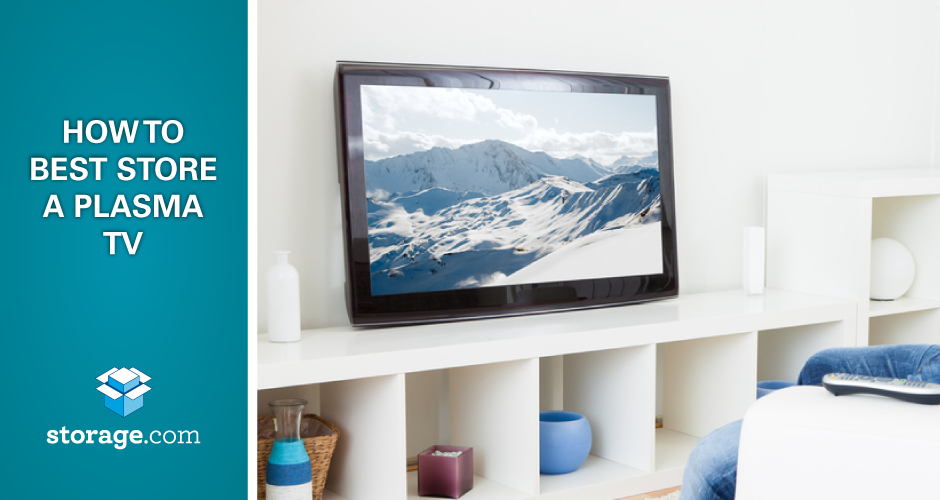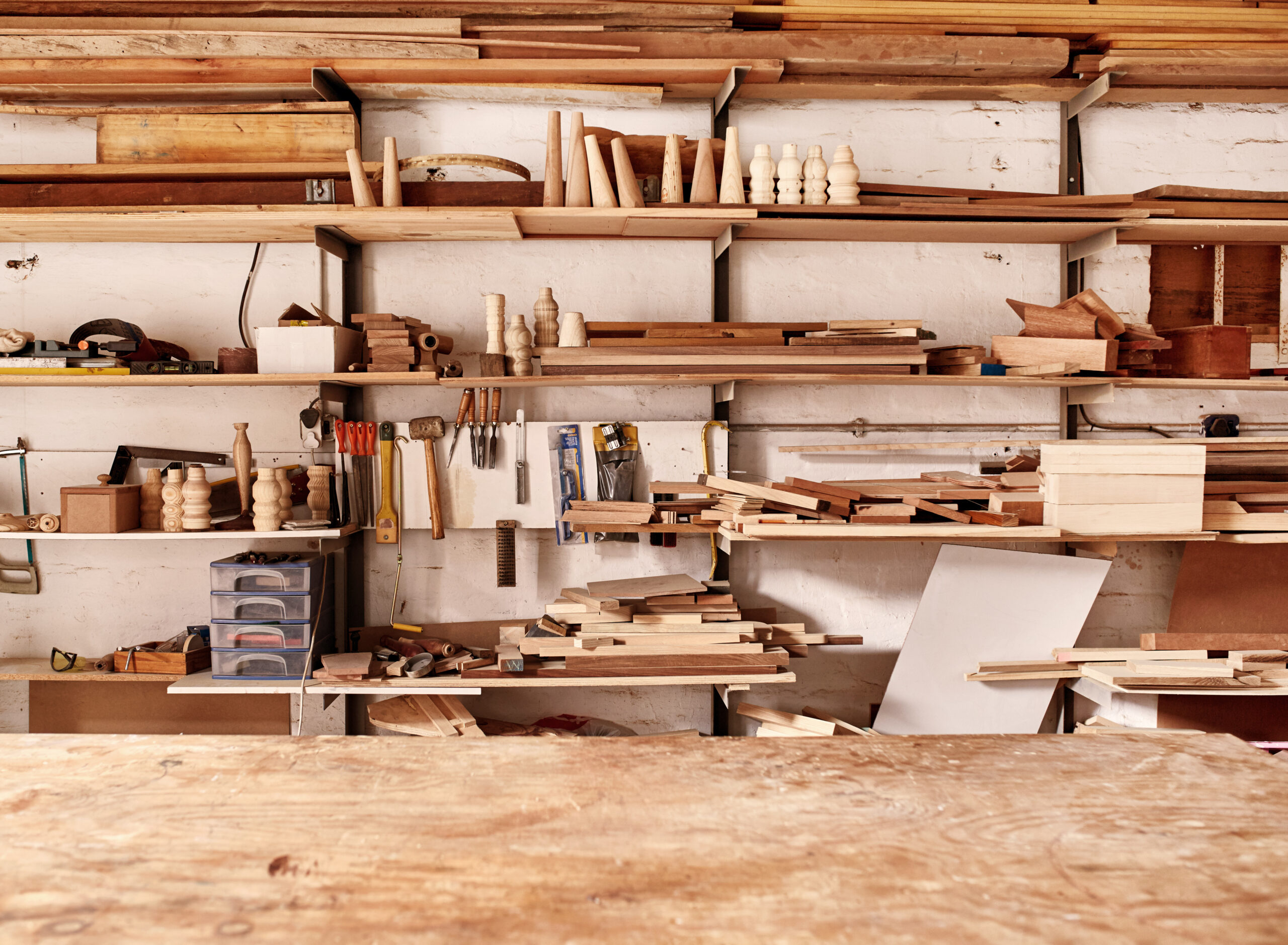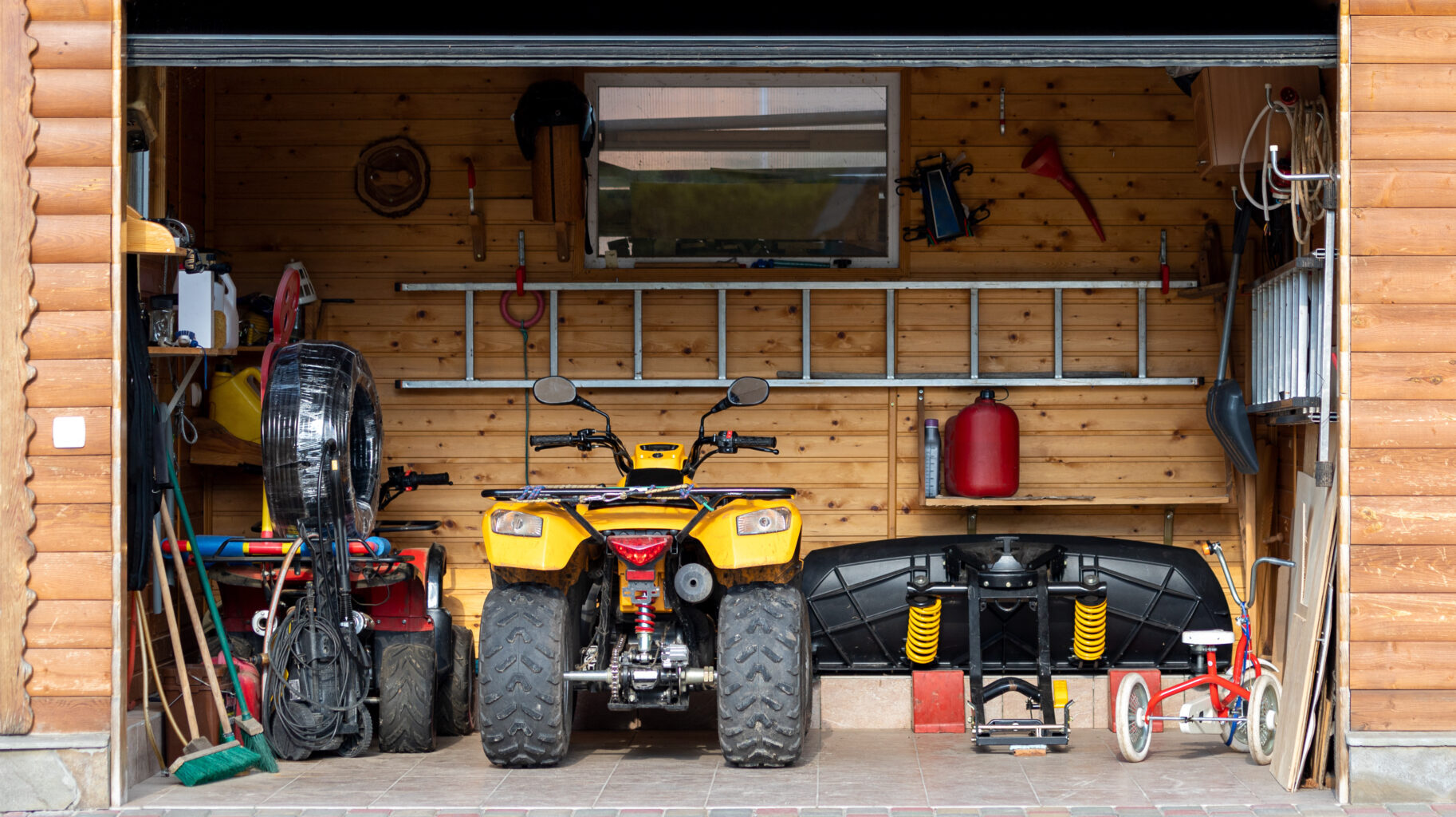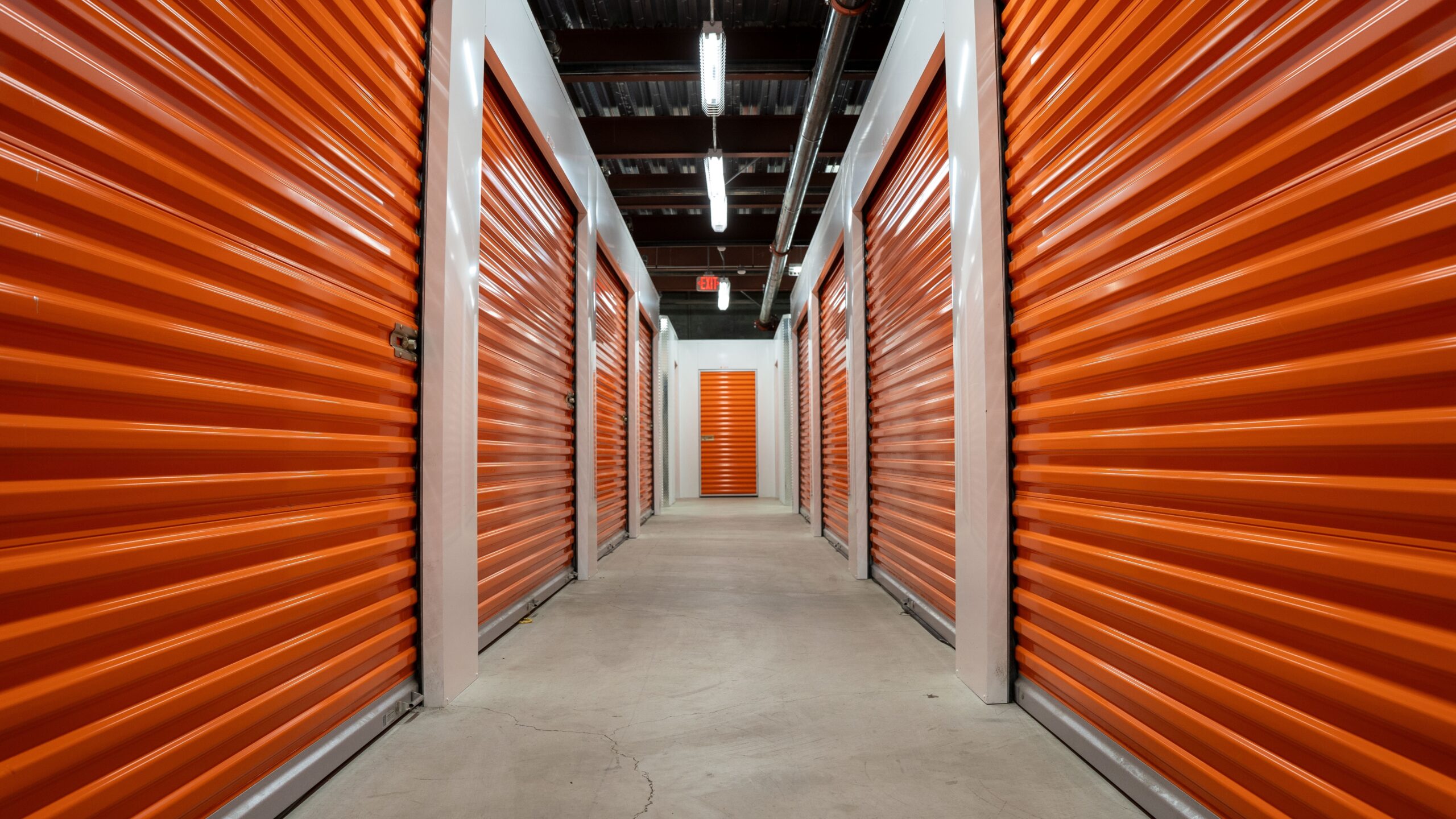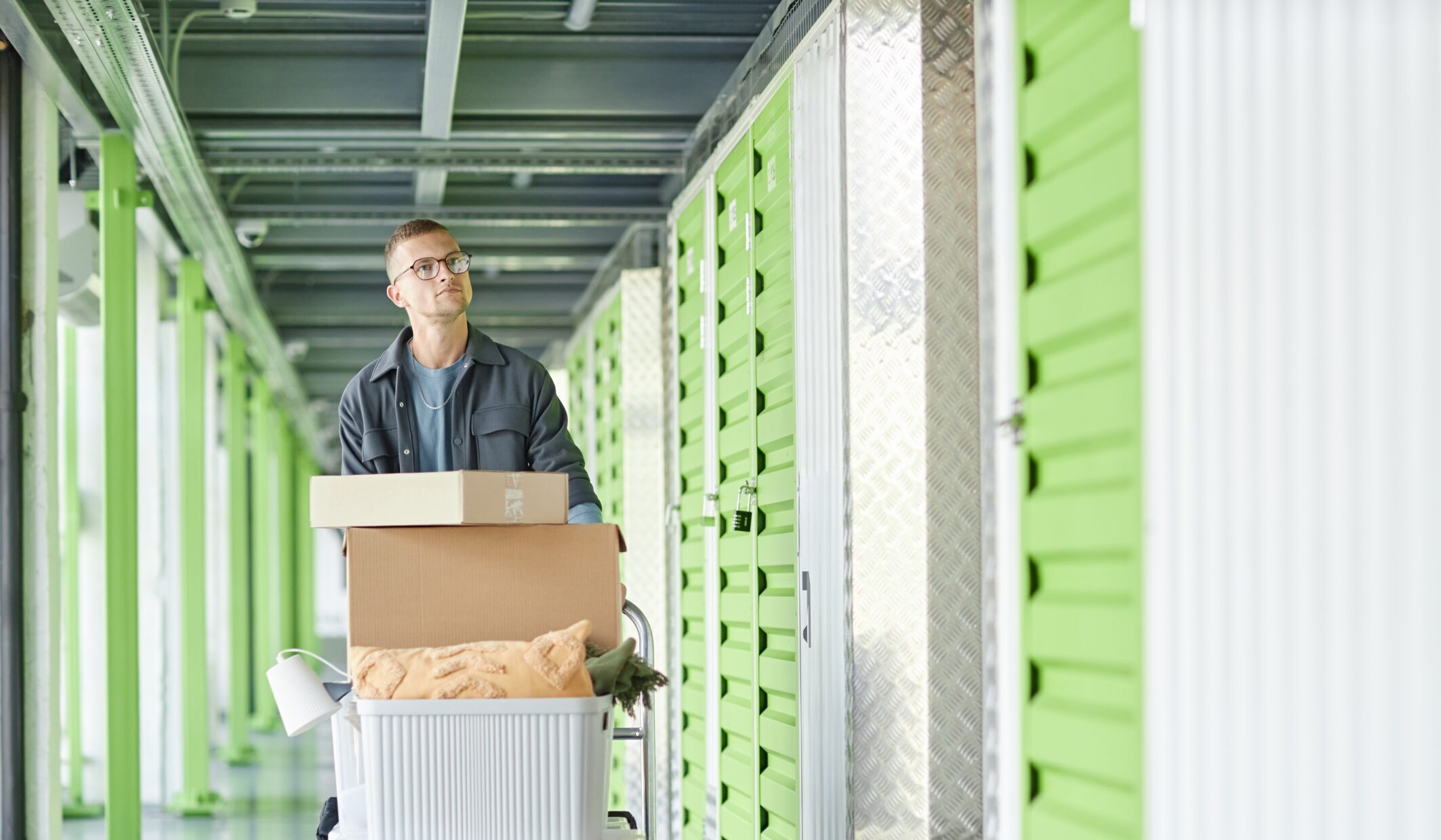By Kyle Stanek, Storage.com
Anyone who owns a plasma TV knows how fragile it is. This means proper storage is of the utmost importance when you move your plasma TV into a self storage unit. Let’s take a look at the ways you should prepare your plasma TV for storage, as well as what type of storage features you need to keep it in good, working condition.
Clean Your Plasma TV Before Storing It
Even when your plasma TV sits in your living room, it collects dust. So imagine how grimy it could get in storage. That’s why thoroughly cleaning the outside of your plasma TV is a good idea before you move it into storage—in fact, a good cleaning can prevent more dust from building up on your TV while it sits in your self storage unit.
That being said, Dan De Bartolo, manager in the Electronic Service Department for Abt Electronics says that “plasma TV owners need to be careful with what they use to clean their screen[s].” His suggestion? Don’t use glass cleaners or Windex, as they interfere with the coating on many plasma TVs. Also, avoid using paper towels, napkins, and cotton towels since they can scratch the screen.
“The safest bet is to consult the owner’s manual for recommended cleaning solutions to ensure no damage is done to the screen,” he explains. If you don’t have the manual, De Bartolo recommends using a microfiber cloth dampened with some warm water.
Store Your Plasma TV Upright and in Its Box
As we said before, a plasma TV is extremely fragile, which means storing it improperly in your storage unit can damage it to the point where it will no longer work. Considering the cost of most plasma-screen TVs, that’s a lot of money to waste just because you didn’t feel like doing the necessary work for plasma TV storage.
First things first—never store your plasma TV in any other position besides upright (or a slight tilt from upright). Even if it’s sitting on top of another piece of furniture in your storage unit, do not lay it flat.
“Plasma TV screens are made with glass and are most vulnerable when lying flat,” De Bartolo says. “The bigger and heavier [it is], the riskier it is to transport or store it flat.”
Another thing to keep in mind when storing your plasma TV is potential damage from external causes. This is where keeping the TV in its original box will help protect it while in self storage.
“The two main issues you may have with storing a plasma TV are moisture and critters,” says Suzanne Kantra, founder of Techlicious, who believes storing a TV in the box it came in will prevent these issues. Also, she suggests taping the original packaging up.
Kantra adds that it will help if you put your plasma TV in its box and then cover the box with a waterproof tarp, too. This is merely a precaution that can save you a lot of stress in case there’s ever a leak in your storage unit.
Opt for a Climate-Controlled Unit at a Secure Facility
In most cases, people who are moving a plasma TV into a self storage unit are storing other furniture or belongings as well, which means the storage unit size needed will vary on an individual basis. However, one thing that all plasma TV storage seekers need is a climate-controlled unit at a facility with good security.
Blake Hall, store manager for Cherry Hills Storage, says, “Plasma TV screens definitely should be placed in climate-controlled storage.” With a climate-controlled unit, you can maintain temperature and humidity levels in your unit so your TV won’t get damaged.
Hall clarifies that plasma TVs can be stored in standard units, but if the temperature gets below zero or above 115°, then the TV can get damaged. This is why climate control is such a good option for people storing electronics.
Also, when storing expensive electronic items like plasma TVs, you want to know that your investment is safe. Hall recommends placing your plasma TV in the very back part of your storage unit, which conceals it from “those [who] may be interested in ‘borrowing’ the plasma screen.” This way, at least, if your storage unit is broken in to, your TV will be harder to spot, making it less likely that it will be stolen.
A better way to protect your TV from being stolen, though, is to find a facility that offers additional security features beyond your locked unit. These would be features like video surveillance, on-site management, indoor units, individually-alarmed units, and gated access. If the facility you’re interested in has at least one of these security features, your plasma TV will be that much more protected from potential break-ins.
